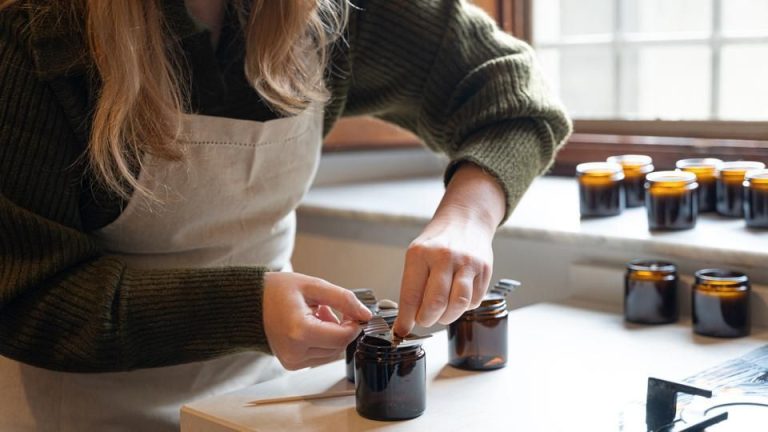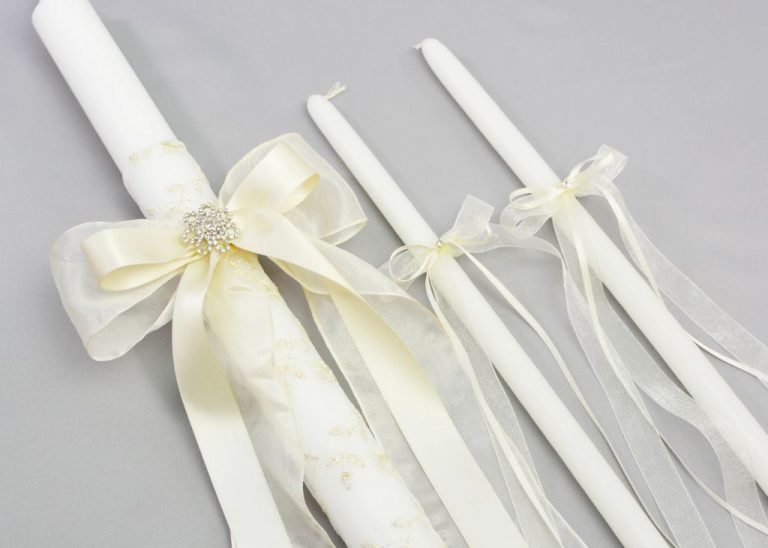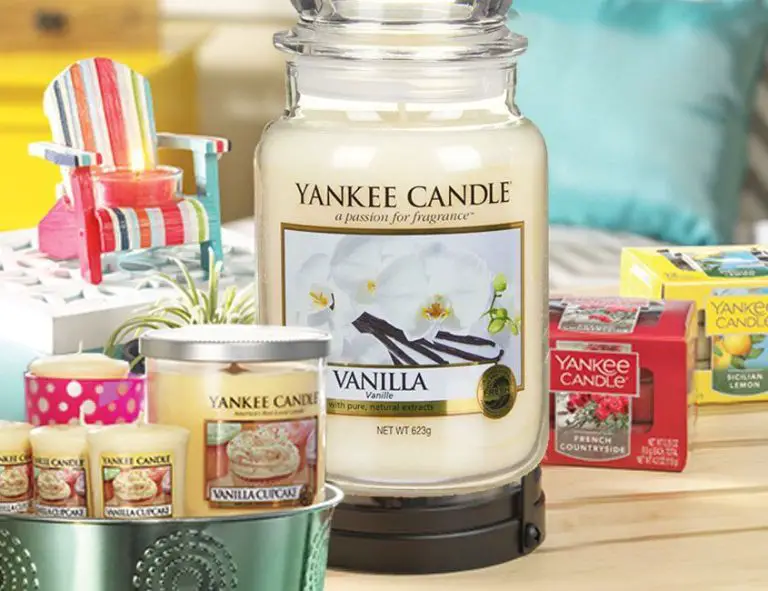Does The Kittredge Family Still Own Yankee Candle?
Yankee Candle is an iconic brand that pioneered the scented candle industry. Founded in 1969 by Mike Kittredge, Yankee Candle started off small, with Mike making candles in his parent’s home in South Hadley, Massachusetts using melted crayons. However, the handmade candles quickly gained popularity, and the business grew rapidly.
In the 1970s, Mike and his wife Kim opened the first Yankee Candle shop in South Deerfield, Massachusetts. Throughout the 1970s and 1980s, Yankee Candle continued expanding throughout New England. The Kittredge family fully owned and operated the business during these formative years, building the company into a leading candle brand through their innovative products and flagship retail stores.
Founding and Early Growth
Yankee Candle was founded in 1969 by Michael Kittredge. As legend has it, Kittredge made his very first candle as a Christmas gift for his mother out of melted crayons when he was only 16 years old.
In 1969, Kittredge, now in his twenties, used the leftover wax from the ski wax business he was running at the time to create scented candles as Christmas gifts. These handmade candles were an instant hit with his friends and neighbors in South Hadley, Massachusetts. Realizing their popularity, he decided to start his own candle making business called Yankee Candle.
The fledgling company started small, with Kittredge and his wife Faith making candles themselves in their home kitchen. They built the business by selling candles as retail products directly to customers at local fairs, farmer’s markets, and through a small town gift shop.
Even in these early days, Yankee Candle became known for its innovative scents, unique candle shapes and designs, and highest quality craftsmanship. The handmade candles were an enormous success, allowing the company to rapidly expand in the 1970s by selling wholesale to other local shops.
Sale to Forstmann Little
In 1998, Mike Kittredge sold Yankee Candle to the private equity firm Forstmann Little & Company for $500 million. The sale marked the end of sole family ownership after 37 years of Kittredge leadership. While Mike Kittredge had grown the company from a small gift shop in Massachusetts to an iconic brand with over 240 retail stores, he decided it was time to move on and let Yankee Candle continue to flourish with new ownership.
The deal allowed Kittredge to realize a substantial return on his life’s work building the Yankee Candle brand. It also provided the company with significant resources and operational expertise under Forstmann Little to support expansion into new markets and distribution channels. Although no longer family-owned, Yankee Candle preserved its New England heritage and brand identity under the new ownership structure.
Expansion Under Forstmann Little
After being acquired by the private equity firm Forstmann Little & Company in 1998 for $500 million, Yankee Candle underwent a period of significant expansion and growth. Forstmann Little implemented strategies to grow Yankee Candle from a predominantly wholesale gifting company into a major national retail brand.
Under Forstmann Little’s ownership, Yankee Candle opened hundreds of retail stores across the United States and internationally. By 2007, the company had over 300 Yankee Candle retail stores globally. The retail expansion enabled Yankee Candle to reach more consumers directly and establish its brand presence in malls and shopping centers.
In addition to retail expansion, Yankee Candle also introduced many new fragrance products and lines during this period. Some notable launches included the Housewarmer candle line in 2001 and the Illuminations candle collection in 2003. Yankee Candle also began offering electric home fragrances, car air fresheners, and other new products to complement its core candle range.
The growth strategies led by Forstmann Little transformed Yankee Candle into a leading lifestyle brand. From 1998 to 2006, Yankee Candle’s sales grew from approximately $100 million to over $785 million under Forstmann Little’s ownership. The equity firm successfully expanded Yankee Candle’s distribution scale and product reach.
Sale to MVP Capital
In 2001, after owning Yankee Candle for nearly a decade, Forstmann Little decided to sell the company to a new private equity firm called Madison Dearborn Partners. The deal was valued at around $500 million, representing a substantial return on Forstmann Little’s initial investment of $75 million back in 1990.
Under Forstmann Little’s ownership, Yankee Candle had grown dramatically from a small New England brand into an international retail powerhouse. The company had also successfully transitioned from relying heavily on its iconic flagship store in South Deerfield, Massachusetts to opening stores nationwide and establishing a thriving wholesale business.
While Yankee Candle had thrived under Forstmann Little, the private equity firm was ready to cash out and pursue other investments. Meanwhile, Madison Dearborn Partners saw significant potential for continued growth by expanding Yankee Candle’s retail presence and leveraging the power of the brand.
Further Growth and Product Innovation
Under MVP Capital’s ownership, Yankee Candle continued its rapid growth and expanded its product lines. By 2010, the company operated nearly 600 retail stores globally. It also heavily invested in innovative new candle designs and fragrances to appeal to changing consumer tastes.
Some of Yankee Candle’s most popular new products launched during this period included the Housewarmer jar candles, the Illuminations collection of premium fragrances, and the Colorscapes line of stylish home décor-inspired candles. To complement its signature large jar candles, the company also began offering a wider range of candle accessories, reed diffusers, electric home fragrances, and personal care items.
In keeping with consumer demand for more natural products, Yankee Candle introduced the Pure Radiance line of candles made from 100% natural wax with essential oil-based fragrances. The company also debuted new candle jar styles and innovative wax melt technologies to adapt to the growing popularity of flameless, long-lasting home fragrance solutions.
Through steady innovation and diversification of its catalog, Yankee Candle was able to continue expanding its brand reach and revenue under MVP Capital’s decade-long ownership. By 2006, the company hit $300 million in sales and cemented its status as an iconic American brand synonymous with home fragrance products.
Acquisition by Jarden Corporation
In 2013, after years of growing Yankee Candle into a billion dollar company under private equity firm MVP Capital, the Kittredge family sold the company yet again, this time to consumer goods conglomerate Jarden Corporation for $1.75 billion. Jarden, which owned brands like Coleman, Crock-Pot, and Rawlings, was eager to add Yankee Candle’s loyal customer base and retail footprint to its portfolio. The acquisition marked another major milestone for Yankee Candle, valuing the company at nearly twice what MVP Capital had paid for it eight years earlier.
For Yankee Candle lovers, the Jarden sale initially sparked concerns about potential changes to the brand’s classic products and store experience. However, Jarden took a “hands-off” approach, keeping Yankee Candle’s operations separate rather than fully integrating them. This enabled the brand to maintain its identity and culture while benefiting from Jarden’s scale and resources behind-the-scenes. The association with Jarden also gave Yankee Candle an opportunity to expand internationally and grow its wholesale business.
Operations Under Newell Brands
In 2016, Jarden Corporation merged with Newell Rubbermaid to form a new consumer goods company called Newell Brands. This brought Yankee Candle under the Newell Brands umbrella along with other well-known brands such as Rubbermaid, Crockpot, Mr. Coffee, Oster, Sunbeam, FoodSaver, and more.
Under Newell Brands ownership, Yankee Candle continued expanding its retail and wholesale business. As of 2020, Yankee Candle operated nearly 600 retail stores in North America and had a presence in over 70 countries through international distributors and retailers. The company also owns the candle brands Illume and Colonial Candle.
While no longer family-owned, Yankee Candle has retained its Massachusetts headquarters and production facilities under Newell Brands. The company emphasizes its longstanding heritage and continues releasing new fragrances every year. As it approaches its 50th anniversary in 2019, Yankee Candle remains one of the most recognizable and successful candle brands in the world.
The Kittredge Legacy
Michael Kittredge founded Yankee Candle in 1969 and built it into an enormously successful company. He pioneered many innovations in candle making that helped transform the industry, including being one of the first to use candles as home decor instead of just sources of light. Kittredge developed unique candle scents that proved wildly popular with consumers and figured out how to make candles that burned longer and more consistently than others on the market.
Even after selling Yankee Candle, Kittredge remained actively involved in advising the company for many years. He helped guide the brand through its rapid expansion in the 1990s and 2000s under new corporate owners. Kittredge shared his candlemaking expertise to ensure Yankee maintained its reputation for quality and innovation even as it grew to become an international retailer.
Beyond just Yankee Candle, Kittredge had a major influence on the overall candle industry. His innovations raised the standard for candle making worldwide and showed other companies the potential of scented and decorative candles as a business. Yankee Candle inspired many other candle startups and forced established companies to improve their products to compete.
So while Kittredge eventually sold the company he founded, his enduring impact is still felt at Yankee Candle and throughout the broader candle world today. The Kittredge family name remains synonymous with quality and creativity in candle making.
Conclusion
When Michael Kittredge first started making candles in his parents’ house in 1969, he likely never imagined that his homemade hobby would grow into one of the world’s largest and most successful candle companies. But through decades of innovation, expansion, and several changes in ownership, Yankee Candle remains a leader in the candle industry today.
While the Kittredge family owned and operated Yankee Candle for over 30 years, their direct ownership ended when they sold the company to Forstmann Little in 1998. This sale marked the beginning of several ownership changes involving large investment firms and major corporations. The Kittredge family has not owned Yankee Candle since 1998.
However, even without direct ownership, the influence of the Kittredge family remains indelible. They established the company culture, commitment to quality, and focus on innovation that has allowed Yankee Candle to thrive through its many ownership changes. While no longer owners, the Kittredge name and legacy are still synonymous with the iconic Yankee Candle brand.





